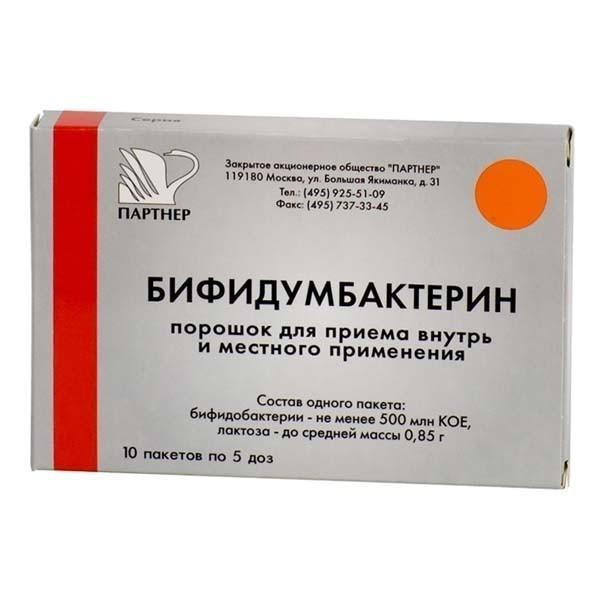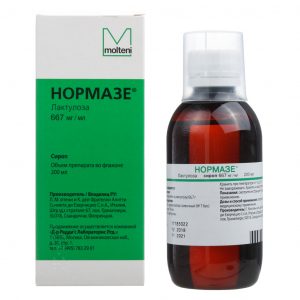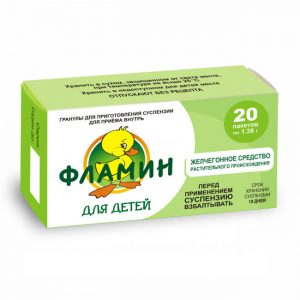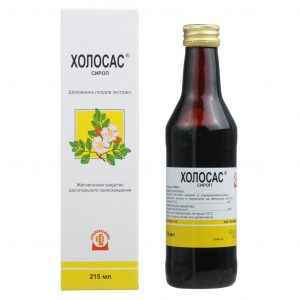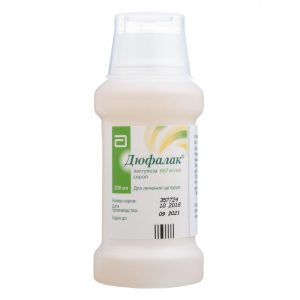Description
Latin name
Bifidumbacterin
Packaging
10 packets of 5 doses.
Pharmacological action
Bifidumbacterin – normalizing intestinal microflora, immunomodulating.
It is an antagonist of a wide range of pathogenic and opportunistic microorganisms, activates the digestion and gastrointestinal tract functions, metabolic processes and nonspecific resistance of the body.
The effect of the drug is due to the high concentration of bifidobacteria adsorbed on activated carbon particles, which are antagonists of a wide range of pathogenic (including Shigella spp., Salmonella spp., Staphylococcus aureus) and conditionally pathogenic microorganisms (including Proteus spp., Klebsiella spp.).
Bifidobacteria, adsorbed on a specially prepared carrier, provide increased clinical efficacy, rapid restoration of normal microflora. Microflora, being a natural biosorbent, accumulates in a significant amount toxic substances that enter from the outside or are formed in the body and decompose them into non-toxic components. Sorbed bifidobacteria, forming microcolonies, intensely activate regenerative and metabolic processes, parietal digestion, the synthesis of vitamins and amino acids, the body’s immune defense.
Indications
Correction of intestinal microflora:
dysbiosis (including prophylaxis during treatment with antibiotics, NSAIDs, hormones, radiation and chemotherapy, stress)
acute infectious diseases and intestinal dysfunction, chronic gastrointestinal diseases, allergic diseases (in complex treatment)
bacterial vaginosis and colpitis
prevention of mastitis in nursing mothers at risk.
In pediatric practice:
infectious (purulent-septic processes, pneumonia) and other diseases (complex therapy in young children
anemia, hypotrophy, rickets and allergic diathesis in weakened children
early transfer of babies to artificial feeding and feeding the donor milk).
Contraindications
Hypersensitivity.
Use during pregnancy and lactation
Used as indicated.
Composition
Active ingredient: bifidumbacterium – at least 500 million (5 Ã 108) CFU.
Excipient: lactose monohydrate – up to 0.85 g.
Dosage and administration
Inside, during meals (mixed with the liquid portion of food, preferably sour milk, or with 30-50 ml of boiled water at room temperature, or with breast milk)
for the prevention of intestinal diseases in adults and children from 3 years of age – 2 sachets 1-2 times a day, children over 6 months old – 1 sachet 1-2 times a day, up to 6 months – 1 sachet once a day, for 2-3 weeks 2-3 times a year.
Treatment: for adults and children over 7 years old – 2 sachets 3-4 times a day for children 3 7 years old – 1 sachet 3-5 times a day, from 6 months to 3 years – 1 sachet 3-4 times a day day, up to 6 months – 1 sachet 2-3 times a day, if necessary, from 2-3 days to 4-6 times a day. The course is 3-4 weeks, and again in a month.
Acute intestinal infections: in therapeutic doses for 5 7 days.
Outwardly, for the prevention of mastitis: 20-30 minutes before feeding with a sterile swab dipped in a solution of the drug (1 sachet is dissolved in 10-15 ml of boiled water at room temperature), the nipples and areoles of the mammary glands are treated for 5 days.
In gynecology: a tampon is administered intravaginally, richly moistened in a solution of the drug (the contents of 2 sachets are dissolved in 15-20 ml of boiled water at room temperature) for 2-3 hours. The course is 8-10 days.
Side effects
Allergic reactions possible.
Drug Interaction
There are no undesirable effects when interacting with other medicines.
The drug can be used in combination with antibacterial drugs.
The effect is enhanced by vitamins (especially group B), and antibiotics are lowered.
overdose
Overdose with Bifidumbacterin is not possible due to the lack of cumulative action.
Storage conditions
Store in a dry place at a temperature of 2 ° to 10 ° C.
Expiration
1 year.
Deystvuyuschee substances
bifidobacteria bifidum
medic Twain form
powder dosage form for oral
partner, Russia
